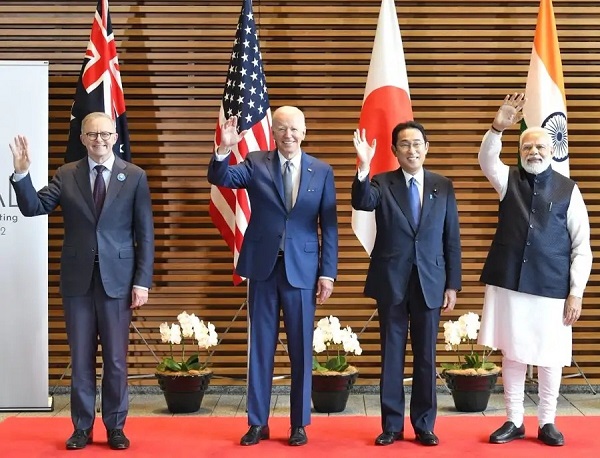New Delhi, (Asian independent) Sri Lanka has seen one of its worst years-the government decided to default on its external debt, widespread shortages of essential items, historic inflation, mass uprisings against the powerful Rajapaksa family Consisting Gotabaya Rajapaksa and Mahinda Rajapaksa and also widespread arson against top politicians.
With the country spiraling into debt and a humanitarian crisis staring at the nearly 22 million people, India stepped up aid with lines of credit (LoC) and regular shipping of food and fuel. With close ally China slipping out of sight during its worst crisis, New Delhi ensured that Sri Lanka did not go down completely.
With the Indian Ocean nation stabilised and with other countries joining in with aid, Japan has taken the initiative to organise a creditors conference and find a lasting solution to Sri Lanka’s debt. India Narrative speaks with Dr. Srimal Fernando-specialist in International Relations and an adviser on New Regional Diplomacy on how Tokyo’s intervention will carve out the path for Sri Lanka.
IN: Why is Japan’s initiative to hold a creditors’ meeting significant?
SF: Japan and Sri Lanka’s relations go back to the nineteen fifties. Sri Lanka stood by Japan at the San Francisco Peace Conference in 1951 where Finance Minister J.R. Jayewardene argued for Japan’s independence and made a plea for Japan to be readmitted to the international community.
Japan has always appreciated that support and that brought a lot of Overseas Development Assistance (ODA) for Sri Lanka. We got soft loans from Japan and it helped us get out of poverty.
We have a total of $51 billion loans. Of these, $9 billion are bilateral loans. Of these bilateral loans, China and Japan together have lent us $3.5 billion-making them the biggest bilateral lenders. These two countries are key to restructuring our debt. To be able to get a bailout from the International Monetary Fund (IMF), we have to first restructure our debt with these two nations.
IN: India has been supporting Sri Lanka this year through its worst crisis. Now that Japan plans to take a leadership role in resolving Sri Lanka’s debt issues, what is India’s role now?
SF: India has given soft loans to the tune of $3 billion to Sri Lanka without any conditions to soften the country’s situation. This has made Sri Lanka meet some of the IMF’s conditionalities regarding the restructuring of debt.
India is an ally of the US. India also works in close cooperation with Japan and Australia. These four countries work in close cooperation through the Quadrilateral Security Dialogue. It is clear that India’s alliances are working on this matter.
I think Sri Lanka is slowly tilting towards India’s and USA’s political and diplomatic influence. Just two days back, the US embassy in Colombo said that it will double its efforts in Sri Lanka through the IMF.
So, whatever the government in Sri Lanka at the policy level and economic influence, it will be working with the Indo-Pacific policy unless there is a big change in Sri Lanka, which is unlikely.
So, all these countries are working with Sri Lanka to bring economic stability to the country, which will lead to regional stability. In a way India’s Neighbourhood Policy is being strengthened through these initiatives.
Countries of the four-nation Quad-Australia, India, Japan and the United States, consider India’s role in the Indo-Pacific to be crucial. On the whole, economic diplomacy is undoubtedly a very significant segment and four-nation Quad has a solid partnership with the IMF. This is a new paradigm of economic initiative where you see several layers at work in Sri Lanka.
IN: Much before all this was happening, Sri Lanka under President Gotabaya Rajapaksa had in January 2022 requested Chinese Foreign Minister Wang Yi to restructure its debt. The request was subsequently followed up by Sri Lanka several times. Will Japan be able to persuade China?
SF: We are currently about to sign a staff-level agreement with the IMF any time now. But the IMF will not extend any loan unless the creditors give a guarantee.
I remember that China had said some time back that at an appropriate time it will work with Sri Lanka on sustainable procedures to restructure the debt with Sri Lanka. However, an official word has not come. But Japan has already announced that it will restructure its debt in the coming months.
If economic stability has to be brought to the country, debt has to be restructured and these two countries-Japan and China, have to give guarantees to the IMF. They all work with different multilateral organisations at different levels.
IN: Besides debt restructuring by major creditors, what is Sri Lanka doing to satisfy the IMF and also stabilise the economy?
SF: Sri Lanka also has to work on internal procedures. The President has announced in the interim budget that VAT will be increased from 12 per cent to 15 per cent. The budget deficit is going to be reduced from 9 per cent to 6.9 per cent. These are major restructuring expenditures.
The budget also has provisions to cut down on government expenditure. The retirement age limit has been brought down. Loss-making government institutes might be privatised or leased out.
So, it is a three-pronged effort-internal economic restructuring, bilateral loans to be restructured and then the IMF will give support.








